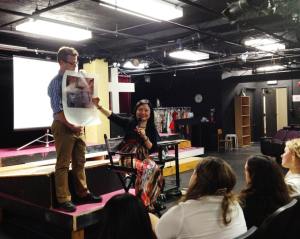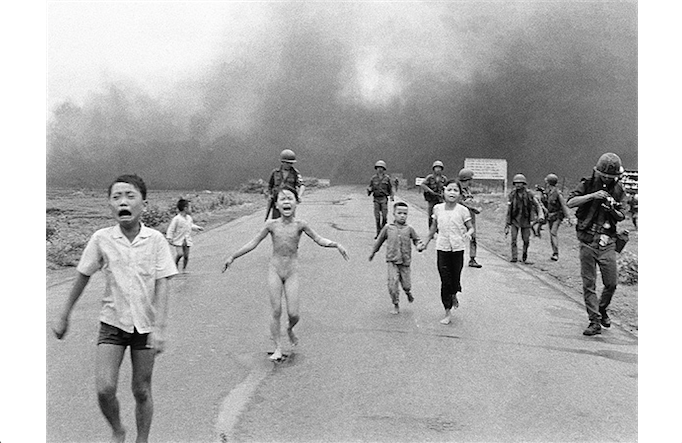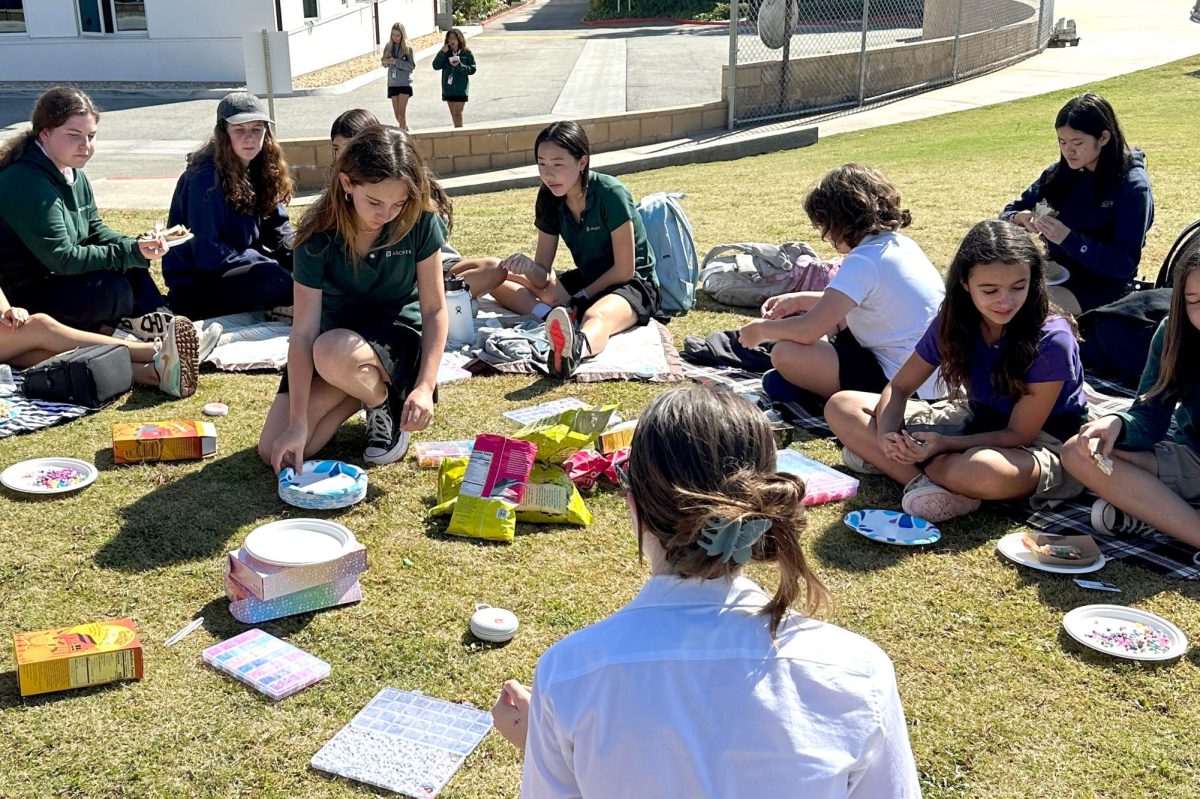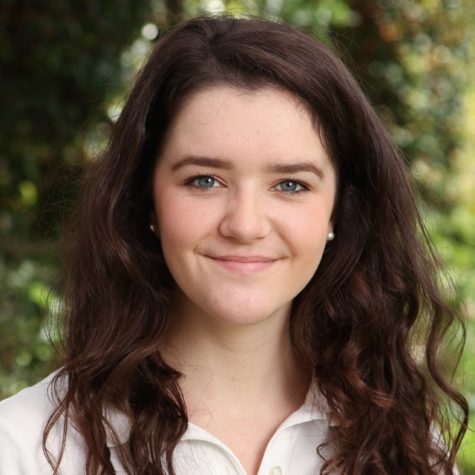The South Vietnamese Air Force dropped a napalm bomb on the town of Trang Bang, Vietnam on June 8, 1972. Associated Press photographer Nick Ut caught a photo of nine-year-old Kim Phuc, running nude down a road, after the napalm severely burned her clothes and skin. Forty-two years later, Phuc visited Archer to share her life story.
When Phuc visited the Diane Brooks Blackbox Theater at Archer, she described how she and her family took shelter from the attack of the South Vietnamese Air Force in the Caodai Temple in Trang Bang. According to the Kim Phuc Wikipedia site, one pilot mistook Phuc and her family for enemy soldiers and dropped a napalm bomb on the temple. Two of Phuc’s cousins and two other villagers were killed in the attack, and Phuc was left with severe burns across her body.
Phuc said Ut snapped pictures of her and other villagers running from the attack until he realized how badly Phuc was burned. Ut quickly drove Phuc and other injured children to a nearby hospital and was told Phuc had little chance of surviving.
Phuc stayed at the hospital for the next 14 months, receiving a total of 17 operations and skin transplants. While giving her presentation to the Archer students, Phuc called Ut a “blessing and a miracle” and said “he saved [her] life.”
During her stay at the hospital, Phuc said Ut visited her frequently and the two grew incredibly close. Phuc said she now considers Ut to be a part of her family, even calling him “Uncle Ut.”
 The New York Times was the first to publish the image, although they were hesitant due to Phuc’s nudity, she said. The image later earned a Pulitzer Prize and was named World Press Photo of the Year in 1972.
The New York Times was the first to publish the image, although they were hesitant due to Phuc’s nudity, she said. The image later earned a Pulitzer Prize and was named World Press Photo of the Year in 1972.
As Phuc grew older, she attended medical school. Her academic career was cut short, however, after the Vietnamese government began using her for propaganda.
Phuc was forced to leave her life and participate in interviews and filming for Vietnamese propaganda. In her presentation to Archer, Phuc said, “They started to control me… I started to hate everyone around me because they were normal.” She wanted nothing more than to return to her life back home.
As the propaganda continued, Phuc’s emotional pain grew worse than the physical pain she felt as a young girl. She said she began contemplating suicide, thinking it would help the suffering end.

Around Christmas in 1982, Phuc said she converted to Christianity and became a UNESCO Goodwill Ambassador for cultural peace. Phuc then founded her non-profit organization to help children affected by war, The KIM Foundation International.
While reading the Bible, Phuc was told she needed to pray for her enemies, and she would eventually learn to forgive them. She said she realized this was the only way she would rid herself of her pain.
Reflecting on these challenges, Phuc said, “I wanted them to suffer more than me… I have to change my heart, or die from the hatred.”
Every night before bed, Phuc said she would write a list of all her enemies, including the pilot who mistakingly bombed her and her family, and would pray for them. By forcing herself to do this, she said she learned how to forgive.
“No more hatred, no more bitterness, I love them.” Phuc said to Archer students.
Now, finally rid of her life of pain and struggle, Phuc said, “My heart is healed.” Looking back on her past, Phuc said she now loves her scars, as they remind her to stay humble and thankful for being alive.
Forty-two years later, 9 year old Kim Phuc, who was facing certain death, is married, has two children, has graduated medical school and has been changing the lives of children around the world who have been affected by war.
In an effort to teach people to focus on the positive moments in life, Phuc said: “We cannot change the hatred, but with love, we can change the future.”





![Freshman Milan Earl and sophomore Lucy Kaplan sit with their grandparents at Archer’s annual Grandparents and Special Friends Day Friday, March 15. The event took place over three 75-minute sessions. “[I hope my grandparents] gain an understanding about what I do, Kaplan said, because I know they ask a lot of questions and can sort of see what I do in school and what the experience is like to be here.](https://archeroracle.org/wp-content/uploads/2024/03/grandparents-day-option-2-1200x800.jpg)





















































teddie • Dec 18, 2014 at 1:02 am
Fascinating article and story